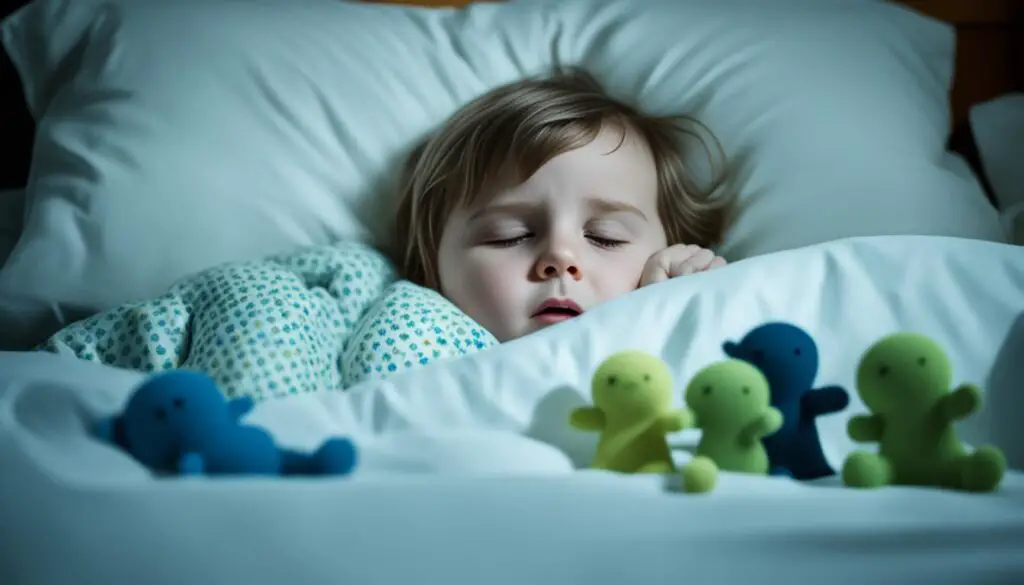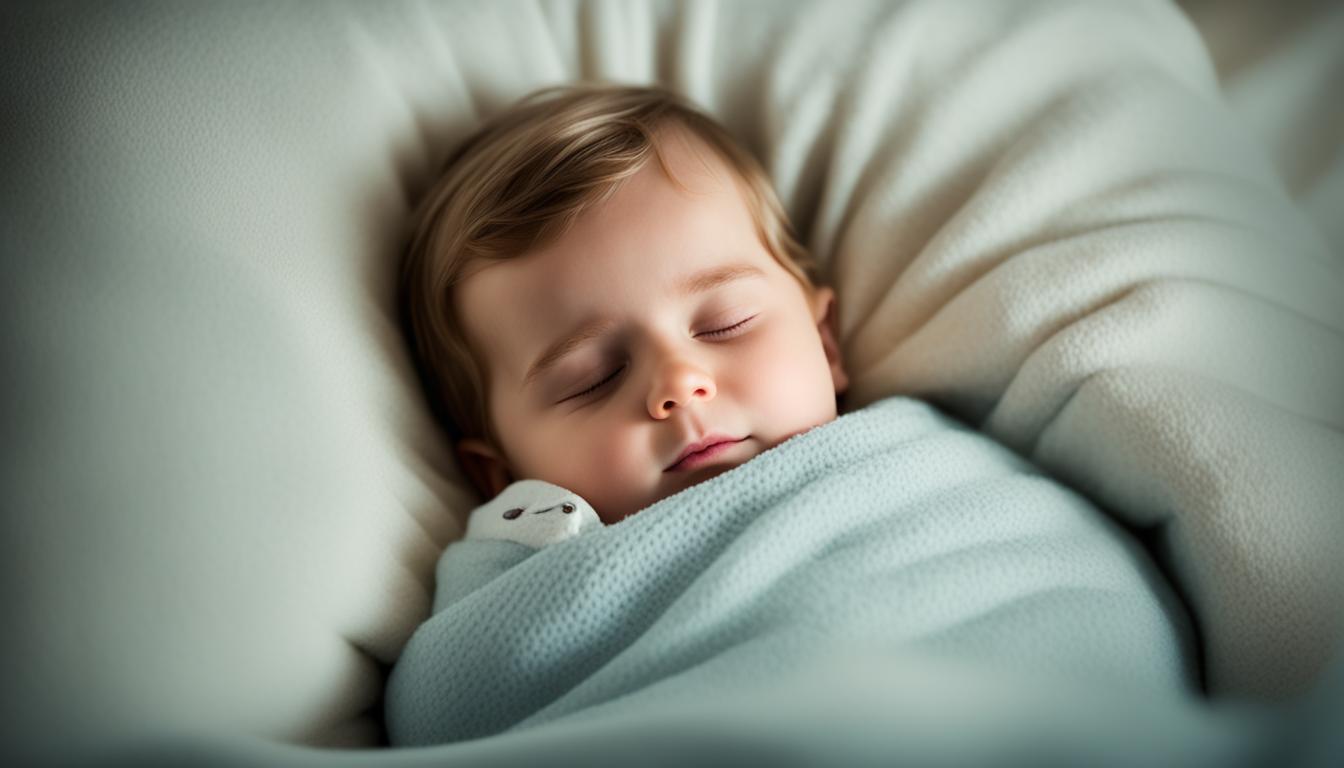Sleeping Arrangements and Child Development: A Parental Guide
I believe that as parents, we always strive to make the best decisions for our children’s well-being and development. One of the choices we face is where our child should sleep. It may seem like a simple decision, but it can have a significant impact on their psychological well-being and overall development.
Co-sleeping, the practice of having a child sleep in the same bed as their parents, is a topic that has sparked much debate. While it can create feelings of security and comfort for the child, it is essential to understand the potential psychological effects it may have on their development.
Co-sleeping can be both beneficial and detrimental to a child’s psychological development. On one hand, it can foster a sense of security and strengthen the parent-child bond. It provides a feeling of warmth and comfort, particularly for young children. However, co-sleeping may also lead to dependence on the parents for sleep and create separation anxiety when the child eventually needs to sleep independently. Moreover, it has been associated with sleep disturbances and difficulties in establishing healthy sleep habits.
To ensure healthy child development and promote independence, there is a need to strike a balance between co-sleeping and encouraging independent sleep habits. Gradually transitioning the child to their own sleep space while still maintaining a sense of security and comfort can help. Establishing a consistent bedtime routine, providing a sleep-friendly environment, and addressing any underlying sleep issues can also contribute to the development of healthy sleep habits and independence.
Key Takeaways:
- Co-sleeping, while providing a sense of security, can lead to dependence and hinder independence.
- It is important to find a balance between co-sleeping and encouraging independent sleep habits.
- A consistent bedtime routine and a sleep-friendly environment contribute to healthy sleep habits.
- Co-sleeping has been associated with sleep disturbances and difficulties in establishing healthy sleep patterns.
- Addressing any underlying sleep issues is crucial for promoting optimal psychological well-being.
The Psychological Effects of Child Sleeping with Parents
Recent research has shed light on the psychological effects of children sleeping with their parents. Co-sleeping, which refers to the practice of children sharing a bed with their parents, can have both positive and negative impacts on a child’s psychological well-being.
On one hand, co-sleeping can foster a strong sense of security and strengthen the parent-child bond. The close proximity to their parents can provide young children with a feeling of warmth and comfort, promoting a sense of safety and trust.
However, co-sleeping may also lead to potential challenges. One such challenge is the development of reliance on parents for sleep. When a child becomes accustomed to sleeping with their parents, they may find it difficult to sleep independently, leading to reliance on the presence of their parents for a good night’s sleep.
Reliance on co-sleeping can also create separation anxiety when the child eventually needs to transition to sleeping independently. The shift from sleeping with their parents to sleeping alone can be emotionally challenging for the child, causing stress and anxiety as they navigate the unfamiliar territory of sleeping alone.
In addition to dependence and separation anxiety, co-sleeping has also been associated with sleep disturbances and difficulties in establishing healthy sleep habits. Sharing a bed with parents can disrupt the child’s natural sleep patterns, leading to sleep interruptions and fragmented sleep.
“Co-sleeping can have both positive and negative effects on a child’s psychological well-being. While it can enhance the parent-child bond, it may also create dependence on parents for sleep and contribute to sleep disturbances.”
To illustrate the potential psychological effects of child sleeping with parents, consider the following table:
| Positive Effects | Negative Effects |
|---|---|
| Enhanced sense of security | Dependency on parents for sleep |
| Strengthened parent-child bond | Separation anxiety when transitioning to independent sleep |
| Feelings of warmth and comfort | Sleep disturbances and challenges in establishing healthy sleep habits |

While co-sleeping can provide immediate comfort and closeness, it is important to find a balance between maintaining a secure connection with the child and encouraging their independence in sleep. A gradual transition to independent sleep can help establish healthy sleep habits while preserving the emotional bond between parents and children.
In the next section, we will explore strategies for promoting healthy sleep habits and fostering child independence in sleep.
Promoting Healthy Sleep Habits and Independence
For parents, finding the right balance between co-sleeping and promoting independent sleep habits is crucial for their child’s healthy development. Gradually transitioning the child to their own sleep space while still providing a sense of security and comfort is key.
Establishing a consistent bedtime routine can help create structure and signal to the child that it is time to sleep independently. This routine can include activities such as reading a book or listening to calming music, allowing the child to relax and prepare for sleep.
In addition, creating a sleep-friendly environment is essential. This can include ensuring a comfortable mattress and bedding, controlling noise and light levels, and maintaining a suitable temperature in the bedroom.
Addressing any underlying sleep issues is also important for promoting healthy sleep habits and independence. If the child is experiencing difficulties falling asleep or staying asleep, it may be beneficial to consult a pediatrician or sleep specialist for guidance.
By finding the right balance between closeness and encouraging independence, parents can help their child develop healthy sleep patterns and promote optimal psychological well-being. Promoting healthy sleep habits is key to ensuring that children get the rest they need and continue to thrive as they grow.
FAQ
What are the psychological effects of child sleeping with parents?
Research suggests that co-sleeping can have both positive and negative psychological effects. It can foster a sense of security and strengthen the parent-child bond, but it may also lead to reliance on parents for sleep, separation anxiety, and sleep disturbances.
How can co-sleeping affect a child’s independence?
Co-sleeping can create dependence on parents for sleep, which can hinder a child’s development of independent sleep habits. It may also contribute to separation anxiety when the child needs to sleep independently.
What can parents do to promote healthy sleep habits and independence?
To encourage independence, parents can gradually transition the child to their own sleep space while still maintaining a sense of security and comfort. Establishing a consistent bedtime routine, providing a sleep-friendly environment, and addressing any underlying sleep issues can also contribute to promoting healthy sleep habits and independence.






